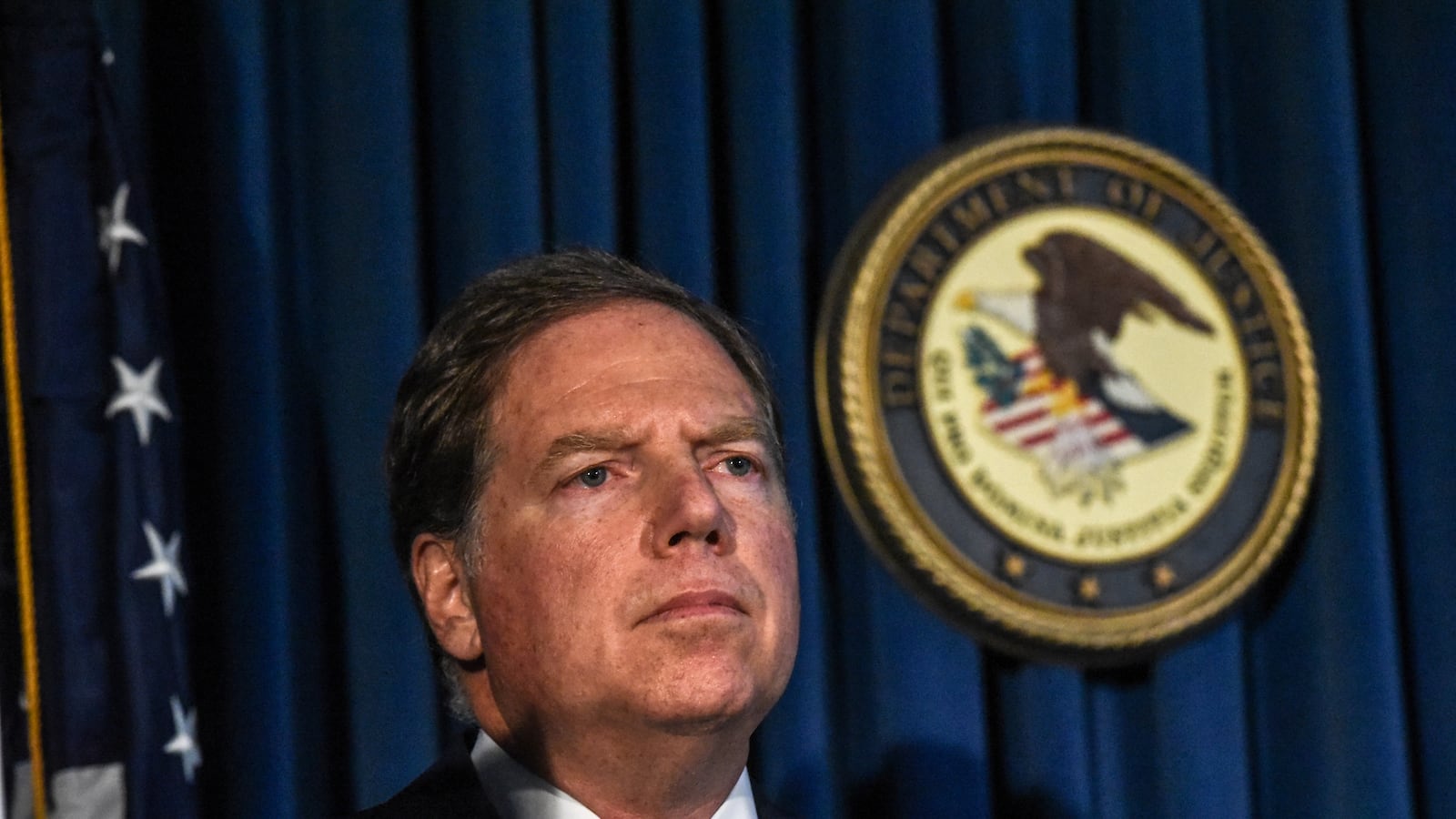The federal prosecutor whom Attorney General Bill Barr ousted in June told House investigators that he was alarmed at the way Barr attempted to replace him, saying that “the “irregular and unexplained actions by the Attorney General raised serious concerns for me,” according to a transcript of the closed-door interview released by the House Judiciary Committee on Monday.
Geoffrey Berman, formerly the U.S. attorney for the Southern District of New York, was brought in for a closed-door session of the Judiciary Committee on July 9 to talk about the events surrounding Barr’s public announcement on June 19 that Berman had “stepped down” from his post, even though the U.S. attorney made clear to Barr multiple times that he was not stepping down.
The late-night announcement by Barr immediately sparked confusion and raised questions about his involvement in a crucial prosecutor’s office. The next day, Berman said he would leave the job when Barr agreed to let his deputy take over as acting U.S. attorney, as opposed to Craig Carpenito, the U.S. attorney for the district of New Jersey, whom Barr wanted to install in the position until the Trump administration’s pick, Securities and Exchange Commission chief Jay Clayton, was confirmed by the U.S. Senate.
Berman, who at SDNY handled sensitive investigations into Trumpworld figures such as Rudy Giuliani, did not comment specifically to the Judiciary Committee on what he believed Barr’s motivations to be, and he studiously avoided any questions about how specific SDNY probes might have factored into the situation. But Berman made clear that the attorney general’s preferred plan would have slowed and complicated the work of the office, and he raised several questions challenging Barr’s handling of the process.
“Why did the attorney general say that I was stepping down when he knew I had neither resigned nor been fired?” Berman asked rhetorically, in response to questions from Judiciary Committee Chairman Jerry Nadler (D-NY). “Why did the attorney general not tell me the actual reason he was asking me to resign instead of saying that it was to get Clayton into the position? And why did he announce the appointment of Craig Carpenito as acting U.S. attorney when Audrey Strauss was the logical and normal successor?”
“Replacing me with someone from outside the district would have resulted in the disruption and delay of the important investigations that were being conducted,” Berman said later. “I was not going to permit that. And I would rather be fired than have that done.” At numerous points, Berman expressed his dismay at Barr’s wish to install Carpenito—who would have retained his previous job in New Jersey—in the job instead of Berman’s top deputy, Strauss, a move he said violated 70 years of precedent at SDNY.
According to his opening statement that was obtained by The Daily Beast last Thursday, Berman said that during a private meeting in New York that Barr called to open the discussion, the attorney general praised his performance as U.S. attorney but said the Trump administration wanted Clayton to take the SDNY post.
Berman said Barr tried to lure him away by dangling other offers—to head the Department of Justice’s civil rights division and, later, the SEC—but Berman declined. Barr told him that if he did not resign, he would be fired.
“I believe the attorney general was trying to entice me to resign so that an outsider could be put into the acting U.S. attorney position at the Southern District of New York, which would have resulted in the delay and disruption of ongoing investigations,” Berman told the Judiciary Committee.
At one point in the interview, GOP committee attorney Steve Castor asked if Barr had laid out to Berman a set of actions that would have allowed him to keep his job—if there was any “quid pro quo for you getting to keep your job.”
Berman said no, and he confirmed that Barr did not mention any specific SDNY investigations—Castor raised Jeffrey Epstein and Guiliani-related probes—in pressuring him to leave. But Berman did say Barr’s offering of other positions could have been construed as a quid pro quo.
“You know, he wanted me to resign to take a position. I assume you could call that a quid pro quo. You resign and you get this, that would mean quid pro quo,” said Berman. Asked to clarify those comments later, he said it wasn’t his term but reiterated that “it could be seen as a quid pro quo, his offering me a job in exchange for my resignation.”
Berman is a rare U.S. attorney in that he was not confirmed by the Senate but was appointed by the judges of SDNY to hold the position in April 2018. Berman insisted that, as he was a court-appointed prosecutor, neither Barr nor President Trump had the authority to fire him before the Senate confirmed a successor, but some past legal precedent has indicated the president can fire a court-appointed U.S. attorney. Trump has said he had nothing to do with Berman’s ouster.







